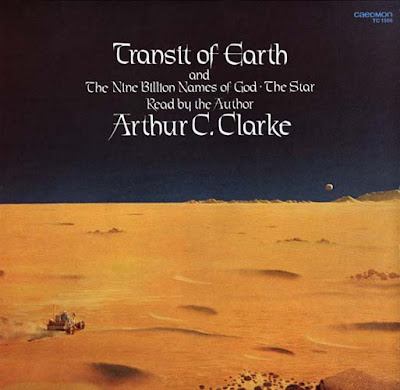Quem tem medo dos clones humanos I?
 Quando der tempo, vou comentar as notícias recentes sobre uma equipe americana que teria obtido clones de embriões humanos. Por enquanto, vou esquentando os motores aqui.
Quando der tempo, vou comentar as notícias recentes sobre uma equipe americana que teria obtido clones de embriões humanos. Por enquanto, vou esquentando os motores aqui.A ética e os efeitos sociais da clonagem humana são discutidos há mais de 30 anos na literatura de ficção científica (Terra Imperial, de Arthur C. Clark sendo um clássico que merece ser lido). Mais recentemente, o filme A Ilha discutiu o tema com a premissa absurda de que só se poderiam obter orgãos para transplante de clones adultos plenamente desenvolvidos (sim, em FC, os livros sempre são melhores que os filmes, com excessão de Blade Runner, é claro!). Da Wikipedia:
Imperial Earth (ISBN 0-15-144233-9) is a novel written by Arthur C. Clarke, and published in time for the U.S. bicentennial in 1976 by Ballantine Books. It follows the protagonist (Duncan Makenzie) on a trip to Earth from his home on Titan, ostensibly for a diplomatic visit to the U.S. for its 500th birthday, but really in order to have a clone of himself produced.
The puzzle game Pentominos features in a prominent subplot of the novel.
The book offers socially liberal ideas about sexuality and racial attitudes. Duncan Makenzie is Black, which is not mentioned until approximately halfway through the book, because the fact is of no more importance to him than his hair color. At several points he also reminisces about sexual affairs with males, and that bisexuality is now considered the norm. Exclusive heterosexuality or homosexuality is not generally practiced.
It is common in science fiction to offer perspectives of social issues. Clarke addresses issues of racism, the spectre of cloning (which was a very new topic in the early 1970s), and the economics of energy production and control.
Clarke describes in great detail throughout the book a personal communications device called a 'minisec' combining mobile video phone and PDA with global data connectivity. He also describes a larger desk 'comsole' or communications console giving similar access to global information services.(...)Duncan Makenzie,is the latest generation of the 'first family' of Titan, a colonised moon of Saturn. Originally settled by Malcolm Makenzie in the early 23rd century, Titan's economy has flourished based on the harvest and sale of hydrogen mined from the atmosphere, hydrogen that fuels the fusion engines of interplanetary spacecraft.
As the plot opens in 2276, a number of factors are combining to make a diplomatic visit to the 'mother world' of Earth a necessity. Firstly, the forthcoming 500th anniversary of US Independence which is bringing in colonists from the entire Solar System, obviously needs a suitable representative from Titan. Secondly, the Makenzie family carry a fatal damaged gene that means any normal continuation of the family line is impossible — so both Duncan and his father Colin are clones of his grandfather Malcolm. Human cloning is a mature technology, but is even at this time ethically controversial. And thirdly, technological advances in spacecraft drive systems — specifically the 'asymptotic drive' which improves the fuel efficiency by orders of magnitude — means that Titan's whole economy is under threat as the demand for hydrogen is about to collapse.
A number of other sub-plots suggest some sort of greater mystery, but remain unexplored. The book ends with him returning home with his new "child" (who is a clone of brilliant but erratic former best friend Karl Helmer), leaving the other plot threads dangling.
Comentários